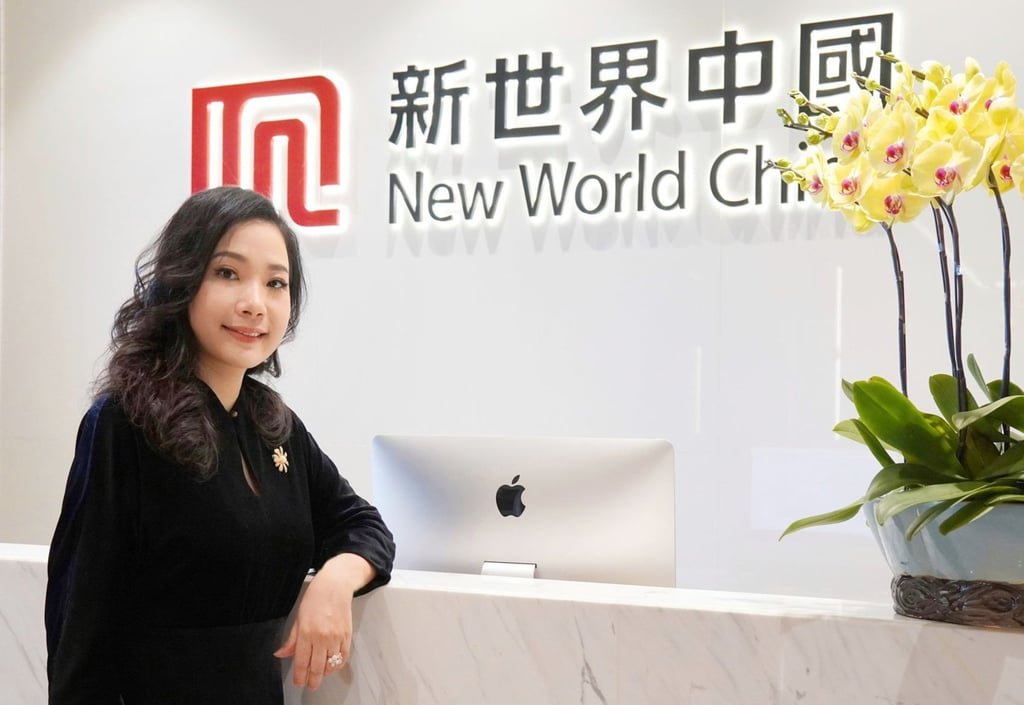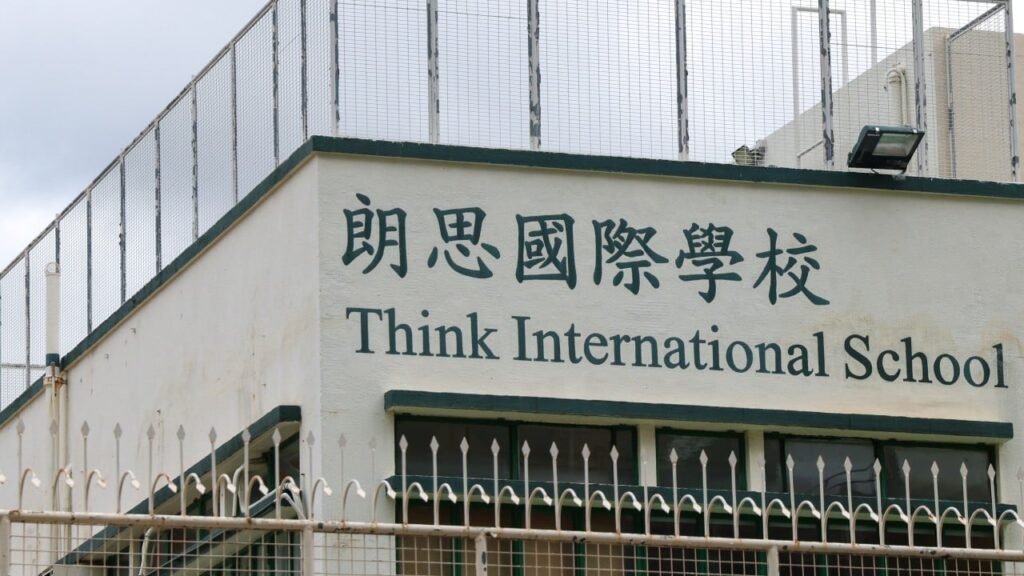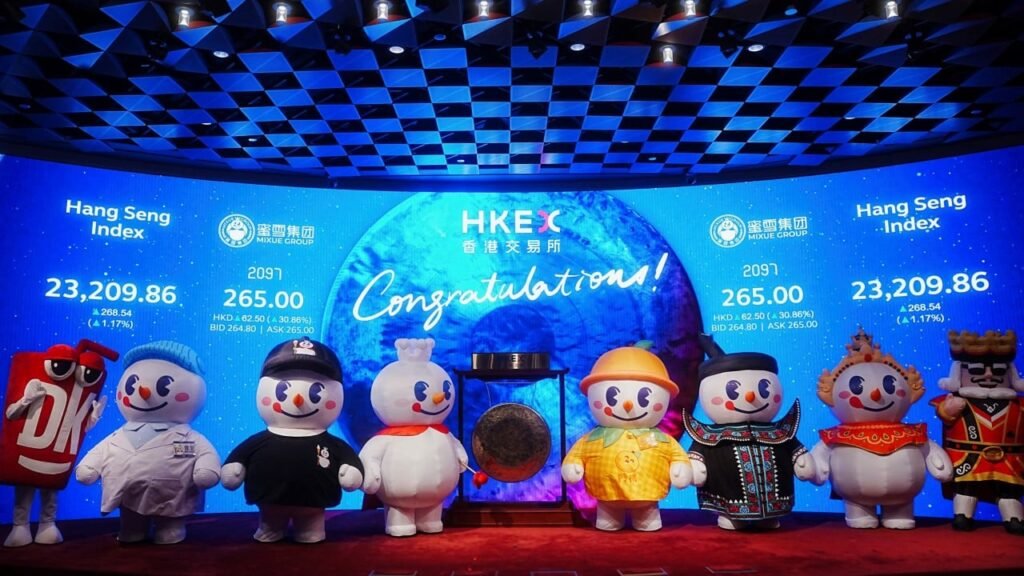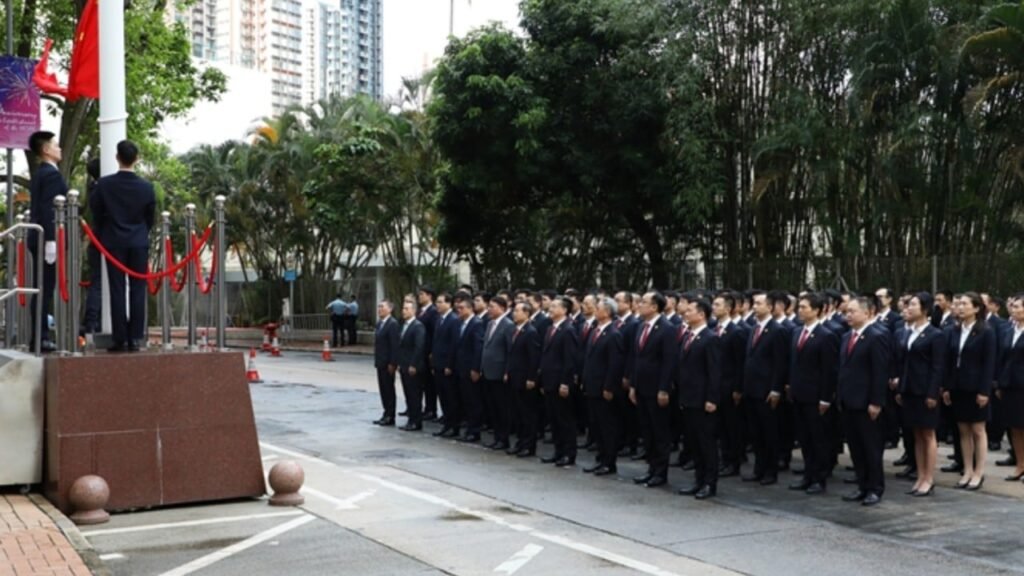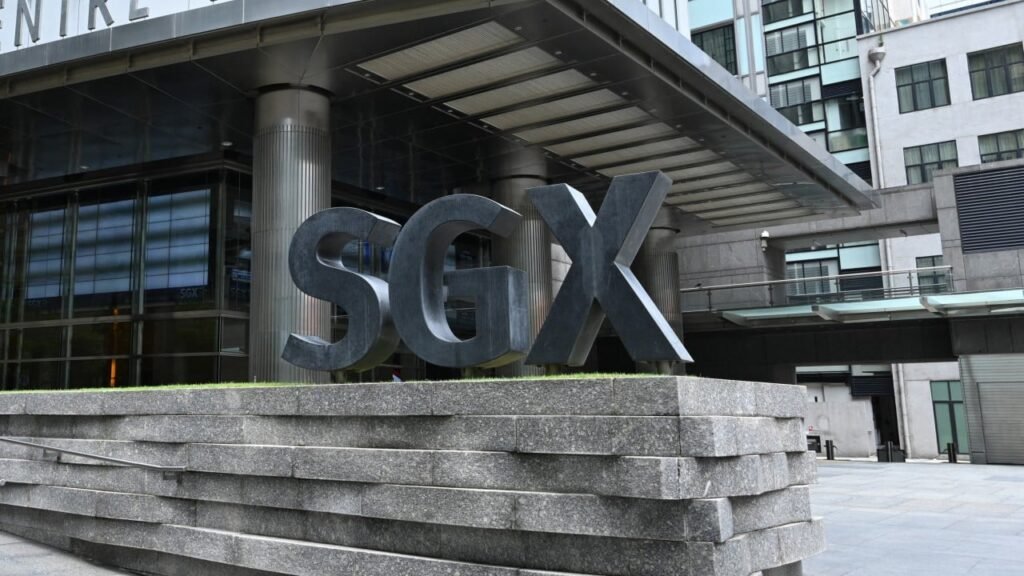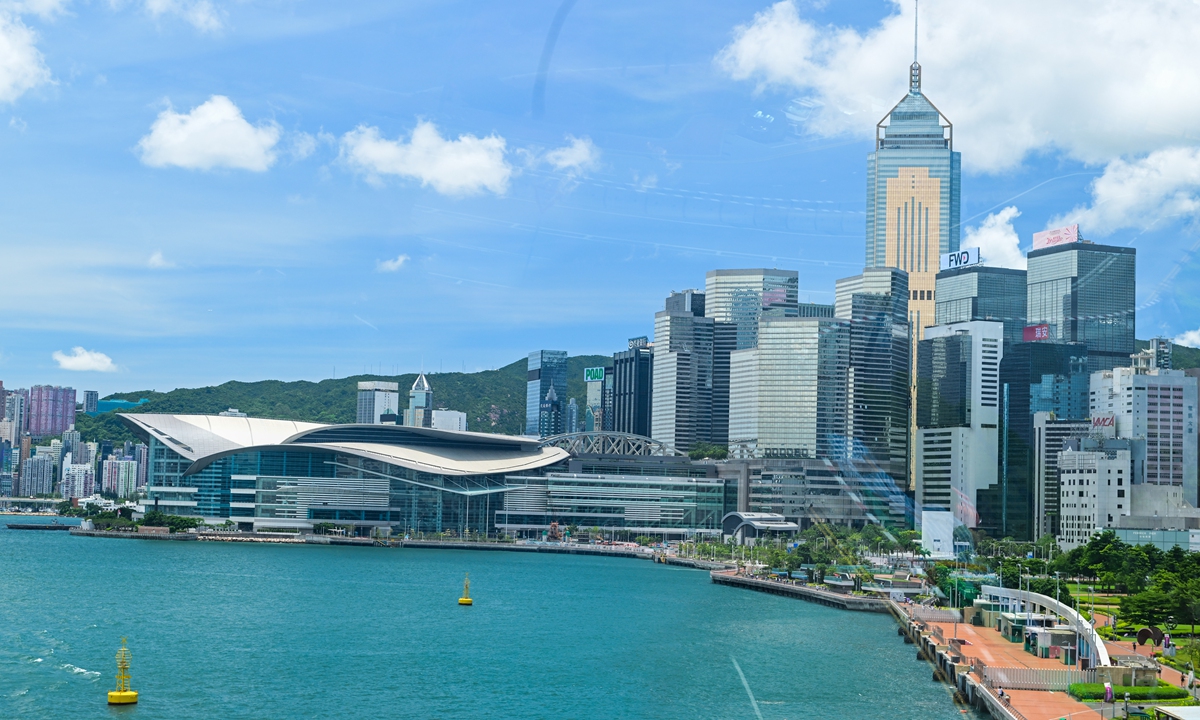
A view of Victoria Harbor, Hong Kong Photo: VCG
With the solid support of the motherland and the continuous financial opening-up in the Chinese mainland, the attractiveness of Hong Kong as an international financial hub has continued to rise since the return of Hong Kong to the motherland and the establishment of the Hong Kong Special Administrative Region (HKSAR) 28 years ago. At the important period of Hong Kong’s financial and economic development, the central government’s measures support the city’s prosperity in reaching a new height, experts said on Monday.
According to statistics from the Hong Kong Exchanges and Clearing Ltd, the capitalization of the Hong Kong stock market reached about HK$43 trillion ($5.48 trillion) on Friday. That was surge of 13.4-fold from HK$3.2 trillion at the end of 1997, public data showed.
According to an analysis by Deloitte China, the Hong Kong stock market held the No.1 spot in global fundraising in the first half of this year, with a total of HK$102.1 billion, followed by the Nasdaq and New York Stock Exchange. Meanwhile, bank deposits at authorized institutions in Hong Kong are up 4 percent year-on-year so far this year to exceed HK$18 trillion, official data showed in June.
“These figures underscore that Hong Kong is becoming more attractive as an international financial center, and it is drawing more foreign companies and individuals to make investments and start new businesses,” Dong Shaopeng, a senior research fellow at the Chongyang Institute for Financial Studies at Renmin University of China, told the Global Times on Monday.
In recent years, the connectivity mechanisms between the mainland and Hong Kong continued to deepen. From the rollout of the Shanghai-Hong Kong Stock Connect and Shenzhen-Hong Kong Stock Connect, to the Bond Connect and Cross-boundary Wealth Management Connect, and further to the launch of the Swap Connect, these initiatives signal that the two-way opening-up has entered a new stage, contributing to the stability and prosperity of Hong Kong’s financial market, Liang Haiming, chairman of the China Silk Road iValley Research Institute, told the Global Times on Monday.
For instance, the Shanghai Gold Exchange announced on Thursday that it has made a strategic move to expand into Hong Kong by launching two new gold contracts and opening an offshore certified bullion vault in Hong Kong.
In addition, the cross-boundary Payment Connect linking users in the mainland and Hong Kong started operations on June 22 – another important measure unveiled by the central government to support Hong Kong’s development, enhance people’s livelihoods, and promote cooperation between the mainland and Hong Kong, according to the statement of the People’s Bank of China.
“These measures have not only enhanced Hong Kong’s role as a hub in the global capital market but also strengthened the foundational support for the internationalization of the yuan. They have further consolidated Hong Kong’s position as a bridge connecting the mainland with international markets and reinforced its function as an international financial center,” Liang said.
According to the 2025 IMD World Competitiveness Yearbook, released recently by the International Institute for Management Development in Lausanne, Switzerland, Hong Kong’s global competitiveness rose by two places further to third globally, marking Hong Kong’s return to the global top three for the first time since 2019.
During the Lujiazui Forum held in Shanghai on June 18, the Action Plan for the Collaborative Development of Shanghai and Hong Kong International Financial Centers was signed, aimed at deepening coordination between the global financial hubs by ramping up market connectivity and exploring new areas of collaboration.
“Hong Kong is an international financial center that connects the mainland with the global market, comprised of a complete capital chain, a vibrant financial ecosystem, a well-developed regulatory system, sound market mechanisms, and a global perspective,” said Mary Huen Wai-yi, CEO of Standard Chartered Bank (Hong Kong), according to a press release sent to the Global Times recently.
By linking domestic and overseas capital and resources, Shanghai and Hong Kong can provide more financing opportunities for tech firms at different stages, support the development of new quality productive forces, and contribute to the country’s high-quality economic development, Huen said.
Hong Kong’s financial market boasts mature institutions, transparent regulation, and free capital flows. Backed by the motherland and with the strong support of the central government, it has emerged as a key asset allocation platform for global investors, Liang said.
With more innovative enterprises and new-economy companies listing in the city, coupled with the continuous expansion of the Stock Connect mechanism, Hong Kong’s competitiveness in attracting high-quality businesses and global capital will continue to grow steadily, he said, noting that Hong Kong, as a super connector and super value-adder between the Chinese mainland and the world, has enormous development potential.


